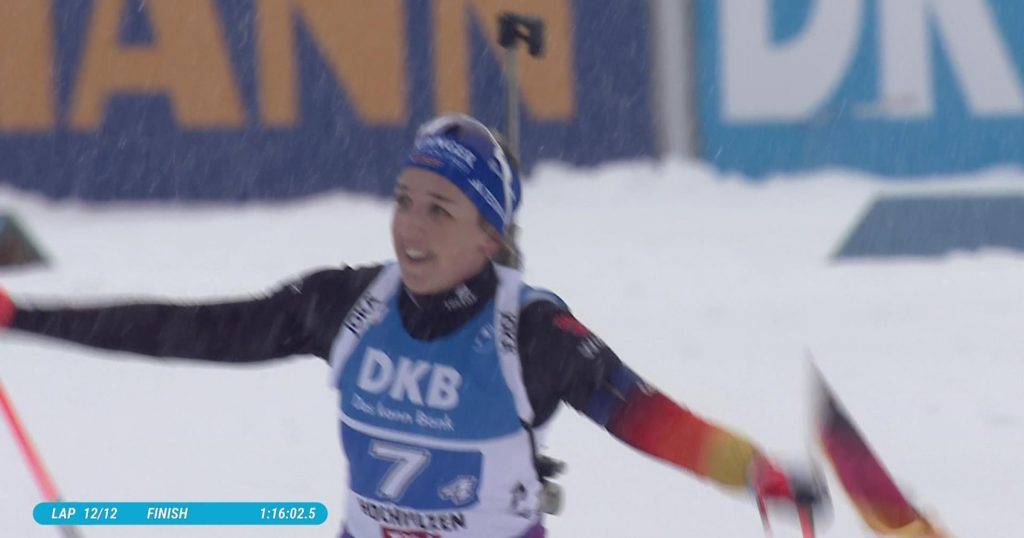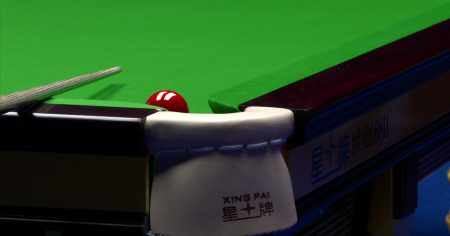The German women’s biathlon team, anchored by a resurgent Franziska Preuss, stormed to victory in the 4x6km relay at Hochfilzen, Austria, snapping a lengthy win drought and injecting a much-needed dose of confidence into their season. The victory, their first relay win since January 2020, was a testament to the team’s cohesive performance, strategic shooting, and unwavering determination in challenging conditions. Preuss, who had struggled earlier in the season, delivered a masterful final leg, holding off a late surge from Sweden’s Elvira Oeberg to secure the gold medal and spark jubilant celebrations amongst her teammates and the German support staff. The win was a significant morale booster for the team, demonstrating their potential to challenge for top honors in upcoming competitions, including the World Championships.
The relay race unfolded with a dramatic narrative arc, punctuated by shifting fortunes and compelling individual performances. Vanessa Voigt, the starting leg for Germany, set the stage with a solid performance, expertly managing the tricky wind conditions on the shooting range and tagging off in a competitive position. Janina Hettich-Walz, the second leg, maintained Germany’s momentum, demonstrating consistent shooting and skiing speed to keep them within striking distance of the leaders. Sophia Schneider, relatively inexperienced in the relay format, delivered a crucial performance in the third leg, displaying composure under pressure and setting the stage for Preuss’s heroic anchor leg. Each leg represented a critical building block in the overall victory, highlighting the team’s depth and synergy.
Preuss’s final leg was a masterclass in biathlon racing, combining tactical acumen with raw speed and precision shooting. Taking over with a narrow lead, she navigated the challenging course with controlled aggression, maintaining her composure despite the pressure of chasing rivals and the weight of expectation. Her shooting was especially impressive, quickly and efficiently clearing the targets, minimizing time spent on the range and maximizing her advantage on the ski track. Despite a late charge by Sweden’s Elvira Oeberg, one of the fastest skiers on the circuit, Preuss held her nerve, showcasing her experience and resilience to cross the finish line first.
The victory in Hochfilzen carries significant weight for the German biathlon team, beyond the immediate triumph. It marks a significant turning point after a period of inconsistent results and provides a powerful injection of confidence as they look ahead to the remainder of the season. The win underscores the team’s development and the effectiveness of their training regime. It also validates the selection decisions and strategic choices made by the coaching staff. The success at Hochfilzen provides a platform for continued growth and sets a positive tone for future competitions.
The triumph at Hochfilzen also underscores the resurgence of Franziska Preuss as a dominant force in biathlon. After a challenging start to the season marked by illness and inconsistent form, Preuss’s performance in the relay demonstrated her resilience and championship pedigree. Her ability to deliver under pressure, particularly in the crucial anchor leg, highlights her mental fortitude and technical prowess. The victory will undoubtedly provide a significant boost to her confidence and serve as a catalyst for continued improvement throughout the season. Her leadership and experience will be crucial for the German team’s aspirations for success in upcoming World Cup races and the World Championships.
Finally, the relay victory in Hochfilzen was a testament to the power of teamwork and the impact of collective effort. Each member of the German team played a vital role, contributing their individual strengths to the overall success. The cohesion and mutual support within the team were evident throughout the race, from the smooth transitions between legs to the enthusiastic celebrations at the finish line. This collective spirit, combined with individual talent and strategic execution, formed the foundation of their triumph, providing a powerful example of how teamwork can elevate performance to achieve extraordinary results. The victory serves as a compelling reminder of the importance of collective effort in achieving shared goals, a principle that extends beyond the realm of sport and into the broader context of human endeavor. The win at Hochfilzen signifies not only a sporting triumph, but also a celebration of the unifying power of teamwork and the potential for collective achievement.














